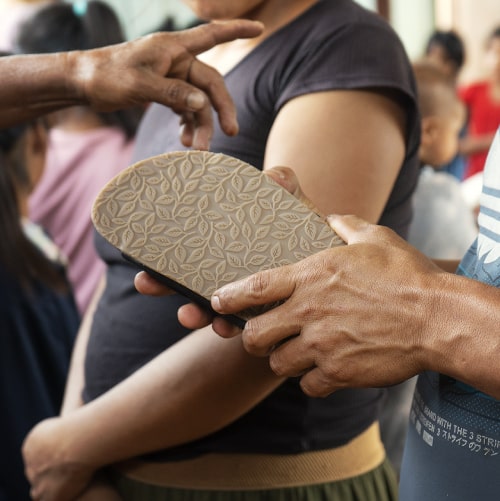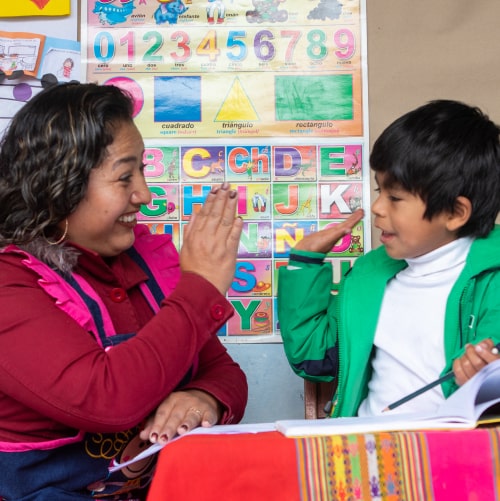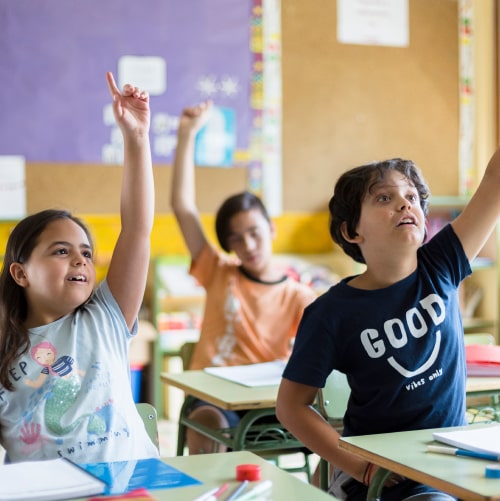The challenges that the pandemic has left for education pose great obstacles for teachers and parents.
The pandemic has left a big scar on education in all the countries of the world. Distance learning and the virtual experience, while efficient for avoiding COVID-19 infection and continuing with academic activities, left disproportionate differences that have set the standards for a new form of learning, a challenge that teachers, parents, and students face today.
Various manifestos, specialists, and entities involved in education have talked extensively about these new challenges; in addition, one of the episodes of the series “Strengthening Socioemotional Skills” from the Educational Quality program explains this topic and gives recommendations to accompany the challenges of learning in the post-pandemic.
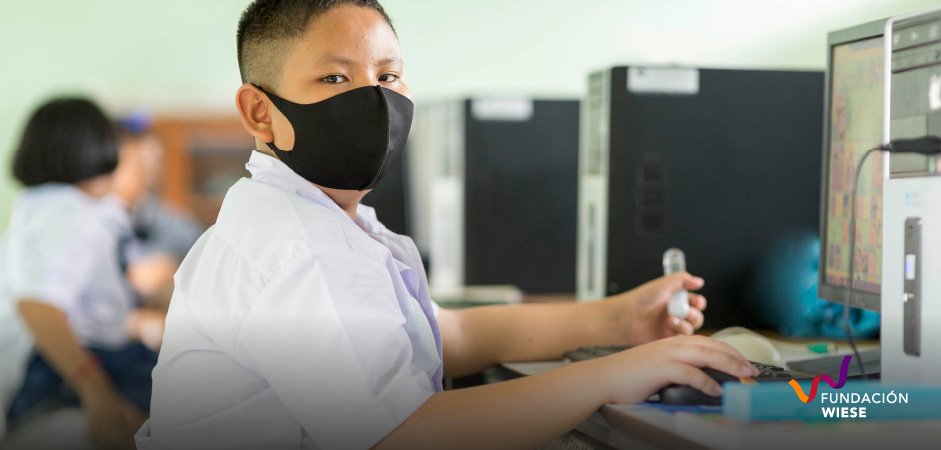
Differentiated learning
One of the main reasons behind these challenges is the different opportunities and resources that students have access to; in addition to the accompaniment that they have been able to receive from their parents and mentors. “Some investigations already allow us to see that the negative impacts on learning are very unequal. There is evidence that, in rich countries, in spite of their great technological advance, there are losses in learning and greater inequality”, says the article from the World Bank about the educational crisis that is currently being experienced.
“In Latin America, 90% of children receive some form of distance learning; but less than half was through internet. The rest was through radio and TV. In many middle-income countries, a small minority, principally in the elite schools, have had various daily hours of synchronous instruction; however, on the other end of the income scale, many students had to settle for a few hours of programming in the media”, warns the study.
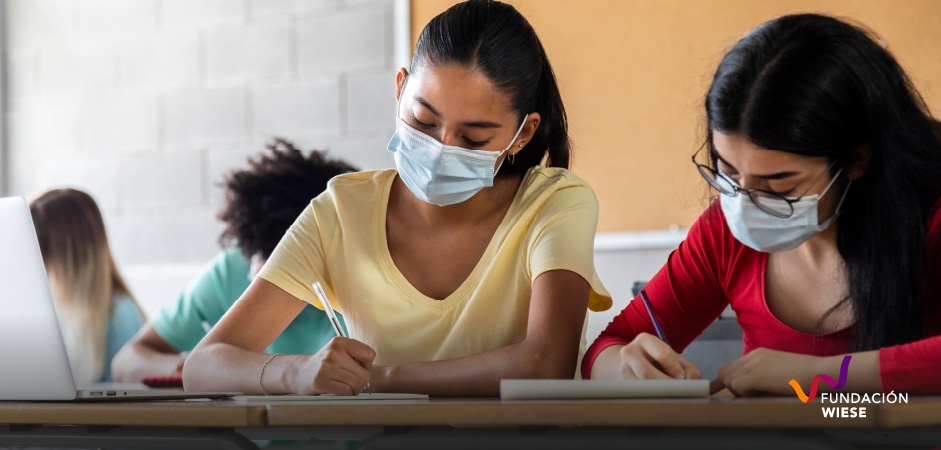
Experiences that have impacted their wellbeing
One of the challenges that education must face is related to the mental health of students, since not all have experienced the pandemic in the same way. For some, this isolation has generated positive experiences,
and for others, it has caused the most negative of situations. Understanding this panorama as a teacher or parent is a challenge.
“Some students lost loved ones, some migrated, their routines were affected, some spent more or less time with their peers and caregivers, while others harbor sensations of fear in different levels”, explains one of the episodes in the series “Strengthening Socioemotional Skills”.
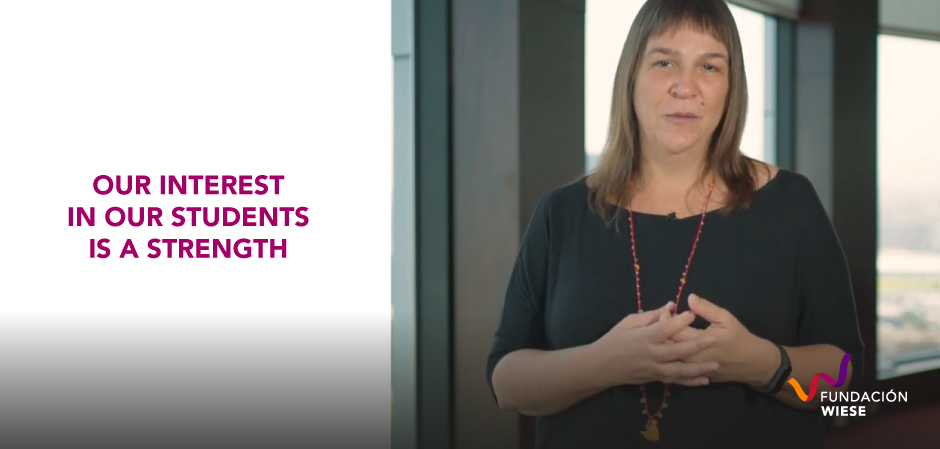
Regarding this challenge, UNICEF presented a report entitled “Decalogue to support the emotional wellbeing of small children during the COVID-19 pandemic and post-pandemic”, which in general terms consists of 10 key messages related to caring for the emotional wellbeing of students.
- Understanding that children’s reactions to the pandemic can vary.
- Ensuring the presence of a sensitive and receptive caregiver.
- Understanding that social distancing doesn’t mean social isolation.
- Providing children with information appropriate for their age.
- Creating a safe physical and emotional environment by practicing calmness, routines, and regulation.
- Providing children with activities.
- Increasing the self-sufficiency of children.
- Creating opportunities for caregivers to take care of themselves.
- Seeking professional help if children show signs of trauma that do not improve relatively quickly.
- Emphasizing strength, hope, and positivity.
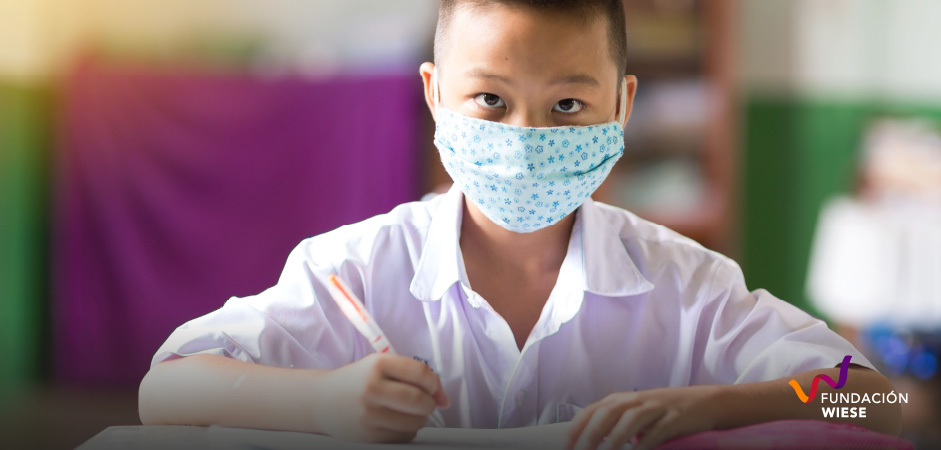
Growing up away from school
The last challenge that education faces is related to the development of the minor away from school. Understanding this point is an important factor for the teacher that reunites with their student, know that the pandemic has formed a part of their personal and spiritual growth. With COVID-19, that line has been broken, and in general, it is a new beginning for many of them.
In this situation is also found the teacher’s empathy, who needs to understand that the relationship between the student and their peers has stopped abruptly for the two years of the pandemic, and that they have transferred to less personalized and more digitized methods. Students have stopped enriching their interpersonal relationships since the arrival of COVID-19.
“A recent investigation produced evidence that the social cognition of some adults has been affected by isolation from COVID-19. The study shows that people experience a reduction in positive feelings, which inclined them to think negatively, which significantly affected their social connection. Those that were less connected socially were more affected. It is likely that children are even more vulnerable to the long-term effects of a delay or absence of interaction with their peers”, indicates Barbara Jacquelyn Sahakian, a clinical neuropsychologist at the University of Cambridge, in a recent publication in the BBC.
In this way, education in the country, and in the whole world, today is challenged by new obstacles brought on by the COVID-19 pandemic, which teachers and parents have to face, designing new activities in the classroom that motivate interaction, profound strategies thought up with time that can be applied on the basis of a correct identification of the cases that require differentiated academic, social, and emotional accompaniment, always seeking and offering help.
For teachers to understand what challenges the pandemic has left us is super important for them to be able to accompany students in this process of returning to in-person classes. Regarding this, we leave you with this video that will help you understand this topic: https://www.youtube.com/watch?v=Yvz5xPRU1ho&list=PL56D9Z8qkAVhUoIwr3zOw41Mw5sUsNoeP




